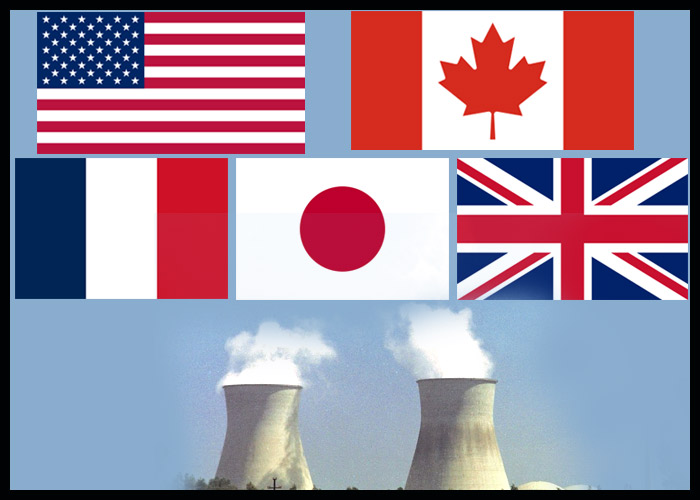
US, Canada, France, Japan, UK To Collaborate On Civil Nuclear Fuels
April 19, 2023The United States, Canada, France, Japan, and the United Kingdom have identified potential areas of collaboration on nuclear fuels for civil use.
The new co-operation aims “to support the stable supply of fuels for the operating reactor fleets of today, enable the development and deployment of fuels for the advanced reactors of tomorrow, and achieve reduced dependence on Russian supply chains,” the U.S. Department of Energy said in a statement.
This multilateral effort would aim to recognize and leverage the unique resources and capabilities possessed by each country’s civil nuclear sectors to establish a global commercial nuclear fuel market. Collaborating on strategic opportunities in uranium extraction, conversion, enrichment, and fabrication supports the five allied natoins’ collective climate, energy security, and economic resilience objectives.
This multilateral cooperation is expected to strengthen each country’s domestic sector and establish a level playing field to compete more effectively against predatory suppliers.
The U.S. Department of Energy said this strategic collaboration aims to increase the depth and resilience of the five countries’ nuclear fuel supply-chains, while supporting the wider geostrategic objectives of further reducing reliance on Russia in the nuclear fuel supply chain for the long term and increasing the availability of commercial free-market alternatives in the supply of civil nuclear technologies to third countries.
The supply of civil nuclear technology, equipment, or materials would be subject to applicable domestic laws, regulations, and international agreements.
Russia’s war against Ukraine and the increasing impacts of climate change have fundamentally altered the global energy landscape and accelerated the need for collaboration between like-minded allies.
In their June 2022 Communique, G7 leaders made clear their collective decision to reduce reliance on civil nuclear and related goods from Russia, including working to assist countries seeking to diversify their nuclear fuel supply chains.
Source: Read Full Article


